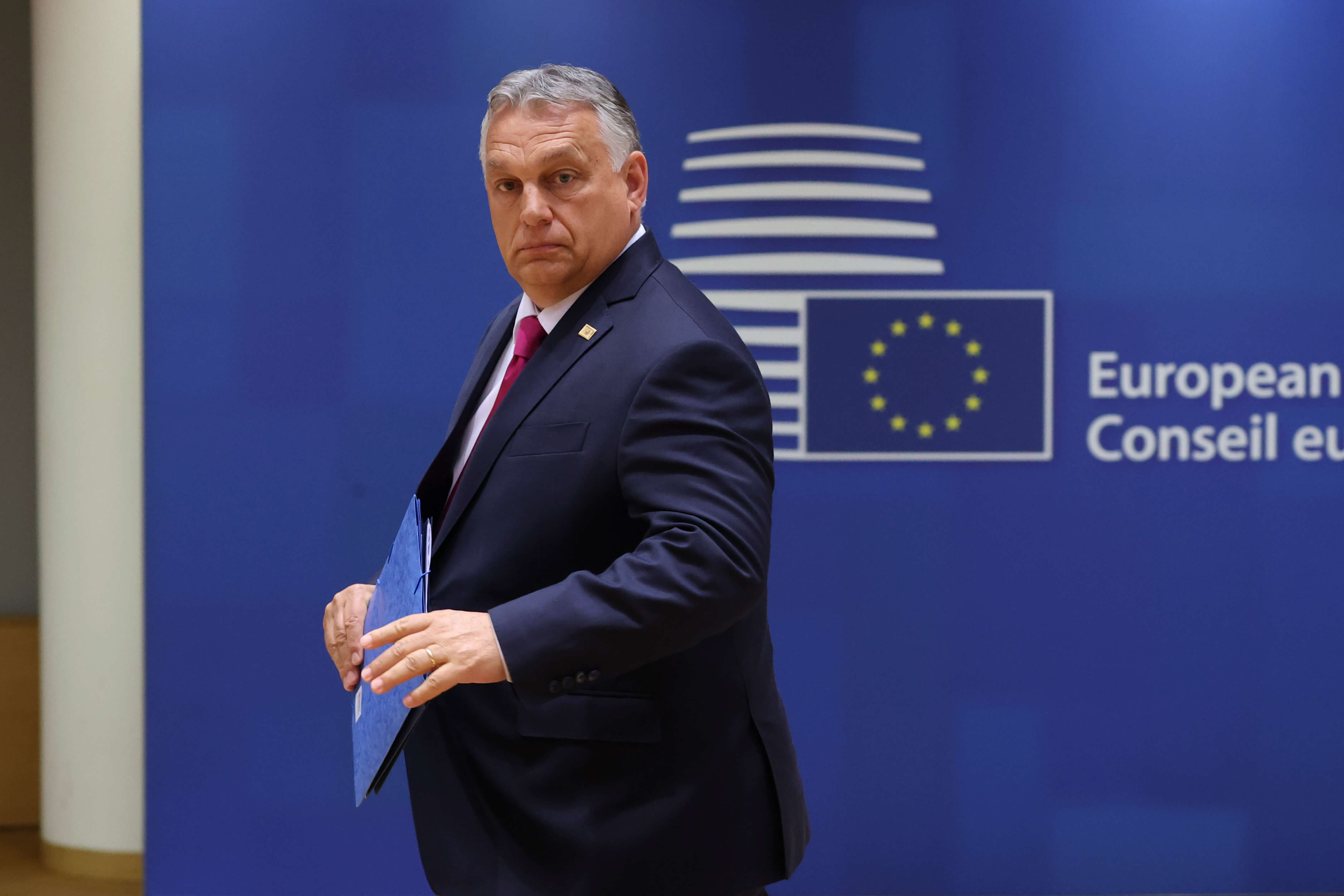A year before the parliamentary elections, Viktor Orbán, the conservative Hungarian prime minister, is entering a period of multiple pressures from both the country and the European environment that are challenging his policies.
Prime Minister Orbán and his ultraconservative government have decided to respond to these pressures by intensifying their populist, Eurosceptic, and anti-liberal policies. They are convinced that they have enough power to ensure the continuity of their 15-year rule.
He sees the greatest danger in the growing anti-government movement led by former member of Orbán's Fidesz party Peter Magyar, and rightly so. Magyar's Tisza party is already alongside or even surpassing Orbán's Fidesz in terms of popularity, and today, exactly one year before the deadline for the parliamentary elections (April 2026), this is an alarm that Orbán cannot afford to ignore.
The government in Budapest is facing a series of mass protests and blockades led by Magyar, which it is struggling to cope with. The protests escalated in the wake of several important changes in Hungarian legislation that have pushed Orbán's party even further to the right.
One of these provides for the possibility of expelling Hungarians who have dual citizenship if their activities threaten "sovereignty or national security"," as the constitutional amendment states.
Opposition anger also led to an amendment that threatens the rights of the LGBTQ+ population, followed by Orbán's party announcing that Budapest Pride will be banned from this year.
Attack from outside
The political conflict goes beyond these specific reasons for protest, as opposition to the current government is growing due to its general policy of confrontation with the EU, widespread corruption, and long-standing pressure on the media and civil society.
Like other hardliners, Prime Minister Orbán believes that his policies are under attack from outside, from the liberal financial and political centres, and he often enters the zone of conspiracy theories.
"We will eliminate the entire shadow army" - Viktor Orbán
“We will dismantle the financial machine that has used corrupt dollars to buy politicians, judges, journalists, pseudo-NGOs and political activists. We will eliminate the entire shadow army,” Orbán said in mid-March, addressing his supporters at a rally.
Internal pressure from the growing opposition is not the only problem causing the Hungarian prime minister headaches at the start of the election year. He has long been in conflict with his partners in the EU, particularly regarding support for Ukraine, which the Hungarian prime minister has been trying to obstruct throughout the entire period of Russian aggression.
Growing German pressure
This pressure has every prospect of soon becoming even stronger, perhaps even unbearable, given the announcements that the new German government may prioritise disciplining Budapest.
According to reports, one of the main priorities of the future government of conservatives and social democrats in Berlin will be the closure of European funds and the suspension of voting rights for EU members that violate its basic principles, such as the rule of law.
So far, the EU has had no effective way to defend itself against the constant threats of a Hungarian veto
Orbán's government has been penalised by the rest of the EU, which blocked around EUR 30 billion from European funds, while around EUR 10 billion was released at the end of 2023 so that Budapest would lift its veto on the decision to open accession negotiations with Ukraine.
So far, the bloc has had no effective way to defend itself against the constant threats of a Hungarian veto, particularly regarding decisions on aid to Ukraine. However, the announcement of a different policy from Berlin and Germany's strong influence on most other EU member states point to a much tougher EU’s stance towards Orbán's government.
Washington is far away
The latest trends in Europe do not benefit the Hungarian prime minister and his sovereigntist, Eurosceptic policies. Despite the steadily growing popularity of the far-right movements close to him, they have not managed to capitalise on their growing popularity by taking over the levers of power.
The right-wing populists in Germany, the AfD, failed to topple the dominance of the mainstream parties in the elections on 23 February, which will form the government in the second half of April.
 The ideological proximity between Budapest and Washington will hardly be enough for Viktor Orbán to overcome the multiple crises in which his policy finds itself
The ideological proximity between Budapest and Washington will hardly be enough for Viktor Orbán to overcome the multiple crises in which his policy finds itself
Neighbouring Austria has also failed to meet Orbán's expectations. Although Herbert Kickl's far-right Freedom Party won the most votes, it remained in opposition, and the government was formed a month ago by the established centre-right, the Social Democrats, and the Liberals.
Since Monday and the Paris court's ruling, the positions of the French far-right and its leader, Marine Le Pen, one of the biggest pillars of the European sovereigntist, Eurosceptic movement to which Orbán belongs, have been drastically weakened.
Orbán sees Donald Trump's new administration as his only strong support, and he is endeavouring to position himself as its closest ally in Europe. However, the ideological proximity between Budapest and Washington will hardly be enough for the Hungarian prime minister to overcome the multiple crises in which his policy finds itself.
The economic ties to the EU leave Hungary no room to think about an alternative. Moreover, the positive attitude of as many as three quarters of Hungarians reflects the attachment to membership of the Union. A recent survey confirmed that both they and their country benefit from EU membership.